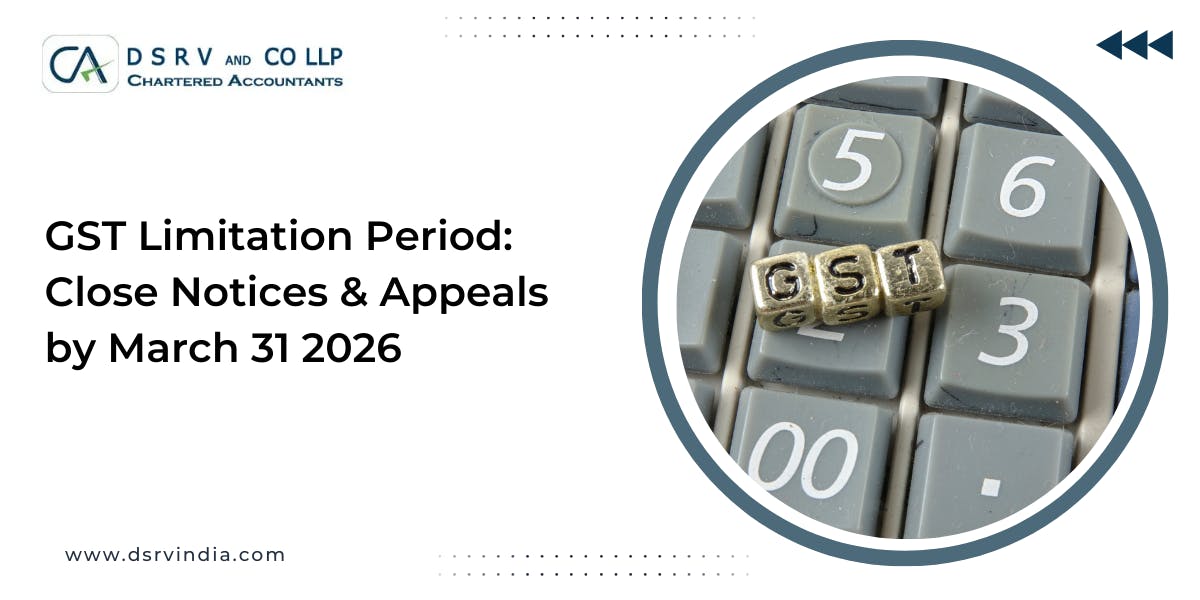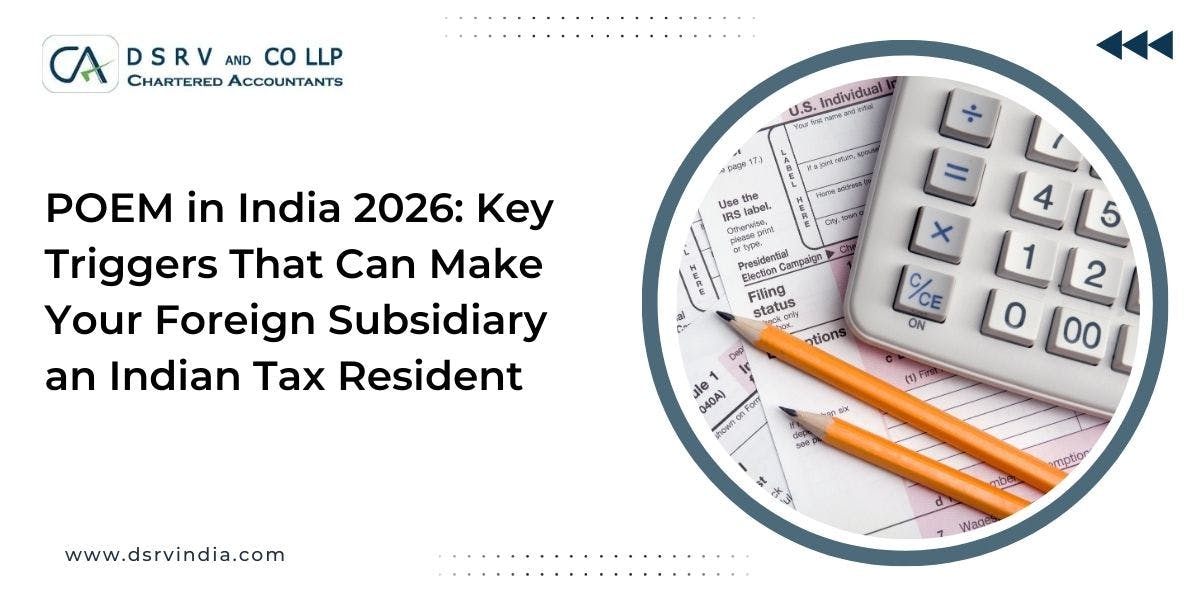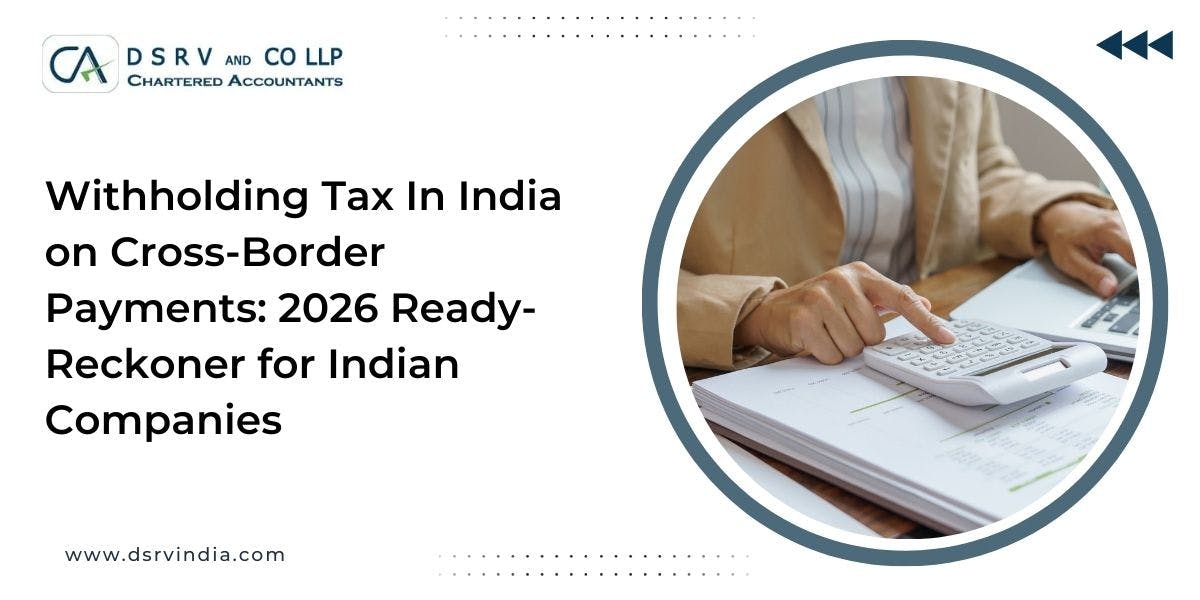Private Trust Taxation Decoded: Your Guide to Effective Estate Planning
Taxation of private trusts is more or less settled way back under the Income Tax Act, 1956 but still, it is one of the most vulnerable and neglected areas as most of the people dealing in these matters both from the tax department and professionals are a bit less interested. Moreover, compliance mechanism is still evolving in view of the digitalization process.
In this series of Succession/Estate Planning- Introduction, importance and taxation for all forms of Estate planning including FEMA matters relating to such planning, this is Part-2 of this series. For other parts, please visit DSRV India.
Taxation of Family Trust can be ascertained at the following stages:
- At the stage of settlement
- At the stage of earning and distribution of Income
- At the stage of distribution of corpus on the dissolution of trust or otherwise.
A: At the stage of settlement:
- In the Hands of settlor/testator/Author of the Trust: The income from the asset would be taxable in the hands of the transferor the settlor if the following conditions provided under section 60 of the Act, 1961 are satisfied:
- The settlor owns an assets;
- The ownership of the assets is not transferred by him;
- Only the Income from the assets is transferred to any person under a settlement or agreement.
However, Section 47(iii) provides that any transfer of a capital asset under a gift or will or an irrevocable trust is not regarded as transfer and thus not subjected to capital gain tax, unless in case of an irrevocable trust where gains arise out of transfer of capital e.g.: shares, debentures etc. Hence, no tax is levied on the settlor for the settlement of an irrevocable Trust. Revocable trusts are taxed as income in the hands of the transferor
- In the hands of Trustee/Trustees: As per Section-56 (2)(x) of ITA any person receives from any person in any previous year any sum of money or any immovable property or any property other than immovable property without consideration or inadequate consideration, such sum shall be taxable in the hands of the recipient. But in the trust arrangement, trustee do receives the property from the settlor under an obligation annexed to the ownership of property, and arising out of a confidence reposed in and accepted by the owner, or declared and accepted by him, for the benefit of another, or of another and the owner, therefore it can be said the transfer is without consideration. Hence not taxable.
- In the hands of the beneficiaries: If the beneficiaries are relative as defined in explanation to Section-56(2)(vii) of ITA of the settlor, any transfer under the settlement of a family trust by testator to the relative beneficiaries is Exempted by the virtue of proviso X of Section-56 (2)(x) of ITA. If some or all the beneficiaries are non-relative to the testator (Individual), amount received by such non-relatives as beneficiaries is taxable as per the provision of Section-56 (2)(x) of ITA at the time of settlement in case of specific trust and at the time of receipt in case of discretionary trust.
However, Exemption is extended to non-relative beneficiaries in case of testamentary private trust or under Will or by way of inheritance by the virtue of proviso III of Section-56 (2)(x) of ITA
B: At the stage of earning and distribution of Income of the Private Trust
- Taxation in the hands of private trust: As per Section-2(31) of ITA, trust is not a person or assesse therefore trust as such is not taxable as per provision of ITA.
- In the hands of trustee/s or beneficiary/s of private trust:
- Section-160 of ITA provides that the trustee or trustees shall be considered as representative assesse under this act in respect of income which they receive or entitled to receive on behalf of or for the benefit of beneficiaries under a trust declared by a duly executed instruments in writings or oral trust whether by will or otherwise.
- Section-161 of ITA provides that every representative assesse i.e. trustee/trustees, shall be subject to same duties, responsibilities and liabilities as if the income were received by or accruing to or in favour of him beneficially and the tax shall be levied upon and recovered from him in the like manner and to the same extent as it would be leviable upon and recoverable from the persons represented by him as an Individual whether there is one trustee or more than one if there is only one beneficiary or in case of more than one beneficiary, share of each beneficiary is determinate.
Case Reference:
CWT v trustees of Nijam family Reminder Wealth Trust 108 ITR 555 (SC) Interpret the term in the like manner and to the same extent with reference to wealth tax
Section-161(1A) of the ITA provides that if the income of the trust includes profits and gains of business, tax shall be charged on the whole income in respect of which a person is so liable at maximum marginal rate of tax subject to one EXCEPTION where such profits and gains are receivable under a trust declared by any person by will exclusively for the benefit of any relative dependent on him for support and maintenance, and such trust is the only trust so declared by him.
Section-164(1) of the ITA provides that income of the discretionary private trust shall be taxed at MMR but subject to AOP (slab rate) if covered under any of the following EXCEPTIONS:
- none of the beneficiaries has any other income chargeable under this Act exceeding the maximum amount not chargeable to tax or is a beneficiary under any other trust; or
- If the trust is declared by Will and such trust is the only trust declared by the settlor.
- If the trust is non-testamentary trust created before 1st March, 1970 and exclusive benefit of the dependent relative of the settlor of the trust.
- If the trust is created a provident fund, superannuation fund, gratuity fund, pension fund or any other fund created bona fideby a person carrying on a business or profession exclusively for the benefit of persons employed in such business or profession.
Exception to Exception:
- If the income of the trust includes profit and gains of business, then preceding Exception shall apply only if such profits and gains are receivable under a trust declared by any person by will exclusively for the benefit of any relative dependent on him for support and maintenance, and such trust is the only trust so declared by him. Hence non-compliance of this exception leads to tax at MMR.
What is discretionary trust?
The explanation I of Section-164(1) of the ITA provides that for the purpose of this section, the discretionary trust includes a trust:
- Where the beneficiaries are not expressly stated in the trust deed or are not identifiable as on the date of such trust deed, or
- Individual share of each beneficiary is not expressly stated in the trust deed or are not ascertainable on the date of such trust deed.
However, CBDT vide Circular No. 45 dated 2.9.1970 clarified that it is not necessary that the beneficiary be named in the trust deed, all that is necessary is that the beneficiary should be identifiable with reference to the trust deed on the date of the trust deed. A trust under which discretion is given to the trustee to decide the allocation of income every year or the right is given to the beneficiary to excise option to receive the income or not each year is a discretionary trust. Based on this circular, many decisions are on record in favour of assesse in this regard.
Case Reference:
CIT v P Sekar Trust (2010) 321 ITR 305 (Mad)
CIT v Pushpa Mohan (2008) 301 ITR 421 (All)
CBDT Circular 577 dated 4.9.1990 clarified that Section-167 is not applicable to private trusts declared under Will, hence AOP slab rate is applicable under Section-164(1) of the ITA.
Section-166 of the ITA provides the Assessing Officer the option to tax and/or recover tax from either the trustee or beneficiary.
CBDT Circular dated 26.12.1974 clarified that general principle is to charge tax only once either in the hands of trustees or in the hand of beneficiaries. Having excised that option once either on trustee or beneficiary, it will not open him to the AO to assess the same income again. The same has been affirmed in the following cases:
Case Reference:
CIT Vs KamaliniKhatau 209 ITC 101 SC
ChaturbhujRaghavji Das trust vs CIT 50 ITR 693 (Bom)
CIT v Marsons Beneficiary Trust 188 ITR 224 (Bom) Trustee to be assessed as Individual.
CIT v Shri Krishna Bandar Trust 201 ITR 989 (Cal) Even Multiple trustees also assessed as Individual and therefore can claim exemptions available to Individuals.
Moti Trust Vs CIT 236 ITR 37 (SC) Income distributed by the discretionary trust during the year shall be taxable in the hands of beneficiary.
CWT vs Estate of HMM Vikramsinhji of Gondal 268 CTR 232 (SC) In case of foreign discretionary trust, Income kept by trustees and not distributed to resident beneficiary, shall not be taxed in their hands.
CIT v TAV Trust (2003) 264 ITR 52 (Mad) Only business income of the trust as mentioned in Section-161(1A) of the ITA is taxable at MMR all other income are taxable at normal rate of tax as applicable on Individual beneficiary.
International Tax Issues of Private Trust:
International tax issues may arise in Private trusts if any of the following is located outside India viz. registration of the trust, location of assets, residential status of testator, trustee or beneficiary, the foreign trust shall be chargeable to tax in India in the following situations:
- If there is only one Indian resident beneficiary irrespective of residential status of settlor or trustees and location & type of assets under trust;
- If all beneficiaries are Indian resident and share of each beneficiary is determinate and known irrespective of residential status of settlor or trustees and location & type of assets under trust;
- If all beneficiaries are Indian resident and share of each beneficiary is indeterminate and unknown irrespective of residential status of settlor or trustees and location & type of assets under trust;
- If there is only one non-resident beneficiary and location of all assets are in India irrespective of residential status of settlor or trustees and type of assets under trust;
- If all beneficiaries are non-resident, location of all assets are in India and share of each beneficiary is determinate and known irrespective of residential status of settlor or trustees and type of assets under trust;
- If all beneficiaries are non-resident, location of all assets are in India and share of each beneficiary is indeterminate and unknown irrespective of residential status of settlor or trustees and type of assets under trust;
- If there is only one beneficiary who is not ordinarily resident in India within the meaning of Section-6(6) of ITA and trust is having business income controlled in India or profession set up in India irrespective of residential status of settlor or trustees and location & type of assets under trust to the extent of business/professional income;
- If there is more than one beneficiary who is not ordinarily resident in India within the meaning of Section-6(6) of ITA and trust is having business income controlled in India or profession set up in India and share of each beneficiary is determinate and known irrespective of residential status of settlor or trustees and location & type of assets under trust to the extent of business/professional income;
- If there is more than one beneficiary who is not ordinarily resident in India within the meaning of Section-6(6) of ITA and trust is having business income controlled in India or profession set up in India and share of each beneficiary is indeterminate and unknown irrespective of residential status of settlor or trustees and location & type of assets under trust to the extent of business/professional income;
Note:
- Indian Trust in any one subject to Indian Income tax Act, 1956.
- There may be other situations in which a foreign trust may be taxed in India based on residential status of beneficiaries, location of the assets and nature of income which can be discussed as specific query.
- For Income tax purpose, the residential status is important while there is no or very little importance of NRI/OCI card holder status of the beneficiaries.
- The resident beneficiaries may entitled to double tax avoidance relief based on applicable tax treaties with Countries of source or unilateral relief available to residents under the Income tax Act in the absence of tax treaties with source countries.
- Similarly, the non-resident beneficiaries may entitled to double tax avoidance relief in their home Countries based on applicable tax treaties with Countries of source or unilateral relief if available to them under their Country tax laws in the absence of tax treaties with source countries.
- All non-residents who are taxable in respect of trust income whether in their own hands or through trustee or trustees are subject to withholding tax as per Section-195 of the ITA irrespective of residential status of trustee or trustees in India.
Disclaimer: This blog is for private circulation, the views are the personal views of the author, and would not be responsible for any action taken based on this, without any consultation.
Authored By: CA Sanjay Kumar Agrawal Email: sanjay@dsrvindia.com M: +91 9810116321





